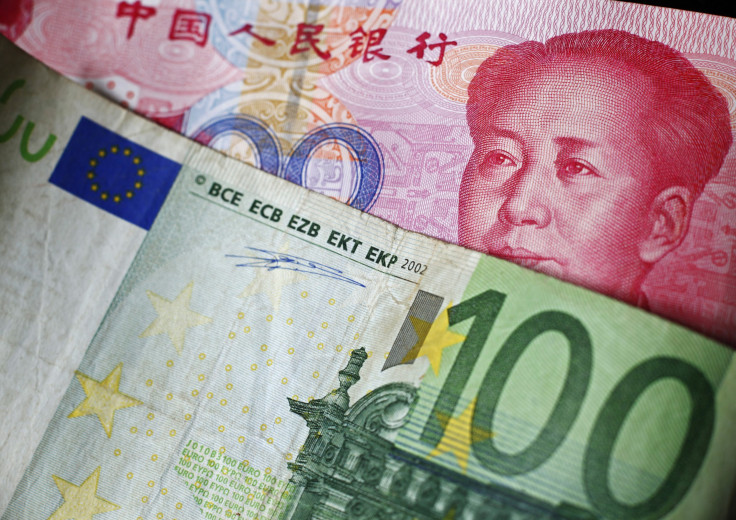China's Latest Move To Globalize The Yuan Is A Partnership With The European Central Bank
China

China agreed on Thursday to its second-largest currency swap to date with a foreign central bank, hastening plans to internationalize the yuan.
The agreement between the European Central Bank and the People’s Bank of China is valid for three years and has a maximum size of 350 billion yuan, or 45 billion euros ($60.8 billion), according to Reuters.
China has created a series of currency swaps with other nations to promote the yuan in global commercial and financial transactions, ultimately aiming to rival the dollar as a reserve currency. Currency swaps provide central banks with additional liquidity in times of financial emergencies, but this isn't China’s primary goal.
"The emphasis is on renminbi internationalization," Louis Kuijs, an RBS economist in Hong Kong, told Reuters.
China’s biggest deal with a foreign central bank is the 360 billion yuan swap with South Korea. China also has a 400 billion yuan swap agreement with Hong Kong.
The currency swap with the world’s second-largest economy is beneficial for European nations. Christian Noyer, governor of the Bank of France, welcomed the agreement on Thursday.
“Banks in the euro zone and France will henceforth have the security they need to develop their activities in renminbi over the long term," Noyer said.
Hong Kong is the only official offshore trading center for the yuan, but banks in Taiwan and Singapore also provide similar services. London is in the running to sign an agreement with Beijing to become Europe’s offshore yuan trading center, Chinese academics have said, as the British capital is a center for global foreign exchange trading, and some 60 percent of yuan trades are done out of Britain.
© Copyright IBTimes 2025. All rights reserved.





















